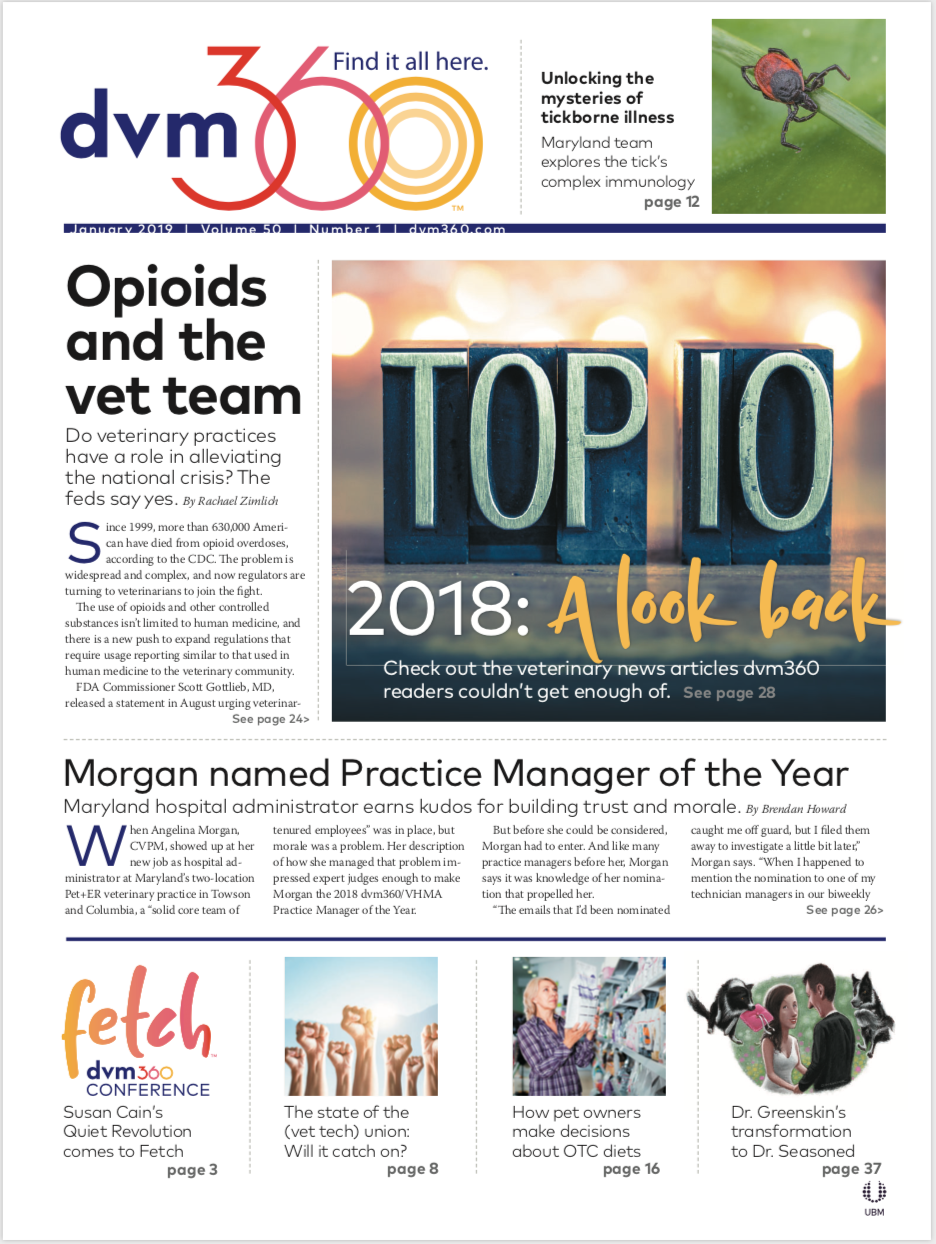State of the (vet tech) union
A movement to unionize veterinary technicians is gaining steam, but will they have enough leverage for real changes?
Worawut/stock.adobe.com

Is unionization coming to the profession via the veterinary technicians? While most veterinary technicians enter their field for the love of the job, both the long hours and workplace hazards-all for an average of $16 an hour in pay-can make it a difficult career to maintain.
According to the Bureau of Labor Statistics, the 102,000 veterinary technicians in the United States make an average of around $33,000 per year-just above the $25,000 federal poverty limit if that technician were supporting a family of four. For technicians working for small, single-owner practices in particular, compensation may be further strained by higher benefits costs.
One solution being explored is unionization. Labor unions formed in the late 1800s as a way to secure safe working conditions with fair compensation, mainly for workers in industrial settings. Many industries have seen workers unionize since, but today about 10 percent of workers in the U.S. belong to a union, and most of them work in public-sector or government jobs. The Bureau of Labor Statistics estimates that these union workers are paid about 20 percent more than non-union workers.
Unionization has begun
The National Veterinary Professionals Union (NVPU) has been quietly working throughout the summer to garner support for organizing veterinary technicians, with the goals of improving working conditions, wages, negotiating power and advocacy efforts. Liz Hughston, MEd, RVT, CVT, LVT, VTS (SAIM, ECC), president of the National Veterinary Professionals Union, past president of the Academy of Internal Medicine Veterinary Technicians, at VetTechXpert, says the movement to unionize veterinary technicians began about a year ago with Morgan VanFleet, a technician in a BluePearl practice in Seattle who has since moved on to a career in nursing.
The Seattle BluePearl workers voted in June to unionize, making the practice NVPU's first contract, and more have followed. VanFleet's own career change highlights some of the motives behind unionization-to retain technicians who might otherwise leave the profession in search of better careers. Hughston says technicians looking to unionize are seeing it as a way to deal with long-standing issues in the profession.
“We started with a group of veterinary technicians, assistants and veterinarians to discuss how organizing into a union might help us deal with the issues we face in our profession-high turnover, toxic workplaces, lack of training, missing/broken [personal protective equipment], no or meager benefits, and very low pay,” Hughston says.
Another recent addition to the NVPU's roster is a VCA hospital in San Francisco, which unionized through the International Longshore and Warehouse Union in April and later partnered with NVPU. When asked about the unusual partnership, Hughston says that practice reached out to the ILWU through a family connection, and the practice and the ILWU later partnered with NVPU. ILWU was able to help move the unionization process in San Francisco along because of its infrastructure, Hughston adds, especially on the organization and legal front.
Aside from these two hospitals, Hughston says there's one more in Washington and another in Oregon that have voted to unionize. One of the hospitals in Washington and the San Francisco hospital have now each started the bargaining process and are on their way to securing the first union contracts in the profession, Hughston says.
None of the recently unionized hospitals or their parent companies returned phone calls seeking comment. Hughston declined to discuss any plans to organize at other hospitals for strategic reasons but says there are more in the works.
Where will it go from here?
Hughston says she's contacted almost every day by a veterinary staff member who wants to know now to unionize his or her own practice, but her group's efforts right now are focused on large, corporate-owned practices.
“The majority of private practice owners … are highly unlikely to face an organizing effort,” Hughston says. Instead, she hopes the effort encourages all practice owners and managers to engage with their teams and collaborate on ways to recognize their staff, make them more engaged and happy in the workplace and find ways to increase pay and benefits.
Hughston says she's not sure what unionization will look like for practice owners yet, beyond changes in training, recognition, pay or benefits.
“Unionization is not an easy thing to do, and it's expensive.” - Christopher Allen, DVM, JD
Christopher Allen, DVM, JD, a regular dvm360 contributor and president of Associates in Veterinary Law, says there are no legal barriers to unionization of veterinary technicians, but that doesn't mean unionization is simple.
“Unionization is not an easy thing to do, and it's expensive,” Dr. Allen says. “Initially, the large corporations will find their labor costs increasing, and it will be more expensive for them to offer their services. If they can get enough members involved to strike or slow down business, profitability of hospitals with unions will drop.”
Dr. Allen adds that while Hughston may be right that small practices won't be among the first to unionize, he says those types of practices are disappearing, and those that are left will face a ripple effect if unionization spreads through the profession.
“Corporate practices are proliferating, and larger practices are being bought up. In the world of private practices, we're still talking about people's livelihoods,” Dr. Allen says. “There is going to be pressure in the upward direction on practices that are not unionized because they will have to compete for staff.”
Even the greatest workplace and culture, in the end, may not compensate for low salaries, Allen says: “There comes a point where it's not rational for someone who's trying to be a breadwinner to give in to the fact that they enjoy their workplace.”
Freelance writer Rachael Zimlich worked as a reporter for dvm360 magazine before returning to school to become a registered nurse. She now works at The Cleveland Clinic.
